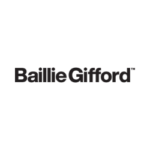USA’s performance has been strong recently, as mentioned above. Three of the top contributors
to performance over the year to end June 2025, SpaceX, Cloudflare and Shopify (which
provides retailers with software tools to facilitate business set up and management),
number among the most significant contributors to returns since inception, along with
Tesla and The Trading Desk, which sells advertising to targeted audiences through
its platform (although this position detracted from performance over the year to end
June 2025).
Among the recent top performers, SpaceX has been making impressive progress in the
rocket launcher and satellite sectors of its business and Starlink, SpaceX’s satellite
internet service, now has six million subscribers in 140 countries, with huge scope
for further expansion in remote and inhospitable environments, such as operating robot
miners in Siberia and providing internet coverage at sea and in disaster zones.
Cloudflare is growing quickly thanks to the speed and efficiencies it offers to users,
and the managers believe the company has scope to become the fourth-largest AI platform
after Meta, Microsoft and Alphabet. Cloudflare is also playing an important role in
the evolution of the internet in the age of AI via its gating mechanism, which stops
AI scraping data for use in large language models. As such, the managers view this
position in part as a play on AI infrastructure.
Shopify has the kind of strong, founder-driven culture favoured by Gibson and Robinson,
and it is reaping the benefits of its strategic adaptability. From its beginnings
as a simple online retailer, Shopify has evolved to offer a range of products, including
its AI-driven Sidekick assistant, which automates large swathes of merchant operations
(eg marketing, inventory management, payments, order processing and shipping), boosting
merchant efficiency. The company maintains a rapid pace of innovation and its growth
is ahead of the managers’ expectations, generating substantial free cash flow. Shopify’s
ultimate ambition is ‘declarative software’, which would allow merchants to command
complex tasks via simple instructions. If realised, this would make Shopify ‘indispensable’
to retailers, placing the business in a strong competitive position from where it
could dramatically expand its market reach.
Other key contributors to returns over the year to end June included Netflix and DoorDash.
Netflix has entered what the managers’ term its ‘fourth act’ of development. After
initial successes as a supplier of DVDs, then streaming services and its subsequent
move into content creation, Netflix is now expanding further into advertising, live
events and gaming. This latest move is generating more content for a greater number
of target audiences and concomitant advertising opportunities, creating a ‘flywheel’
of momentum that gives the company scope to keep growing beyond its 300 million subscriber
base.
DoorDash is using its restaurant delivery infrastructure to expand into high-frequency,
non-restaurant deliveries such as groceries, alcohol and package returns for major
carriers such as UPS and FedEx. The company aims to be a comprehensive last-mile delivery
solution for various products that fully uses its drivers (dashers) and payment systems,
while dramatically increasing its addressable market. DoorDash remains profitable
thanks to its focus on efficiency, logistics and effective data usage.
The main detractors from performance over the year to end June were Moderna, Brex
and Nvidia. For Moderna, the post-pandemic period has been challenging, and the stock
has been under greater pressure over the past year due to softer demand and disappointing
execution. The share price is now discounting a significant amount of bad news. However,
the company has been working to reset expectations, and it has new products coming
on stream, including combination vaccines and personalised cancer treatments, which
advanced trials suggest can deliver great improvements in survivability. Furthermore,
Moderna does not rely on government funding so, unlike some of its competitors, it
is not vulnerable to shifts in US policy. USA’s managers believe Moderna has turned
a corner, and they are excited about its drug pipeline, so they continue to hold this
stock.
Brex, a private fintech company providing services for small and medium-sized businesses,
is also undergoing a reset. The sudden rise in interest rates in 2022 exposed internal
issues and revenue growth slowed. The company is now leaner and is refocusing and
expanding its product offering, including via a partnership with another USA holding,
Stripe (a fast-growing payments technology company).
The trust’s underweight to Nvidia detracted as the stock continued to perform strongly.
The managers reduced the position significantly in 2024 and in January this year on
valuation grounds, but they took the opportunity provided by subsequent share price
weakness in March and April to rebuild the holding, using recycled profits from a
reduction in Cloudflare. The subsequent rebound in Nvidia’s share price has supported
recent performance.























